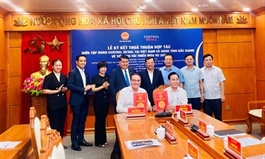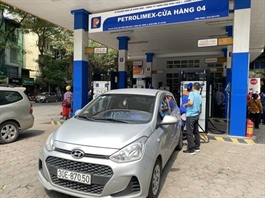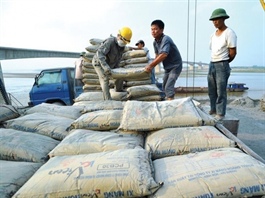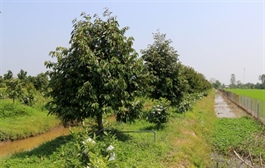The favourable factors for FDI in the paper industry
The favourable factors for FDI in the paper industry
The trend of Asian countries such as Japan, South Korea, and China investing in the paper industry is set to continue. Vietnam Pulp and Paper Association general secretary Dang Van Son spoke to VIR’s Van Nguyen about future industry developments.
Vietnam’s paper industry is affected by the trend of production relocation away from China. Have foreign paper ventures relocated from China to Vietnam in an effort to evade environmental pressure?
Currently, Vietnam’s environmental standards are quite stringent. For instance, the standards for effluent and emissions have chemical oxygen demand and biochemical oxygen demand indices that are comparable to those of developed nations.
Therefore, many foreign-invested enterprises (FIEs) must also exert considerable effort to satisfy Vietnam’s requirements.
Is foreign direct investment (FDI) in the paper industry still positive in the context of Vietnam’s current attraction?
Vietnam’s paper industry is relatively favourable for investment. It has expedited the growth of FDI, particularly in 2017 and 2018. The majority of FDI in the paper industry originates from China, Hong Kong, and Thailand. Vietnam’s total paper production was approximately 8 million metric tonnes in 2022, with FIEs accounting for more than 60 per cent.
Many foreign paper ventures have a capacity of 500,000 MT per year, whereas the majority of domestic enterprises are small in scale, with a capacity of less than 10,000 MT per year. This raises the possibility that FIEs will have a significant impact on the domestic market.
The rise in economic investment to ramp up production not only satisfies the domestic market, particularly during the period of economic recovery following the pandemic, but also benefits exports.
In 2022, several companies began putting their production lines into operation, including Linh Giang Paper with a capacity of 15,000 tonnes per year; Quang Binh Xenlulo with a capacity of 20,000 tonnes per year; and BBP Paper in Phu Tho with a capacity of 50,000 tonnes.
What are the benefits of luring FDI into Vietnam’s paper production?
There are policies intended to attract this and Vietnam’s ability in the manufacturing of packaging and paper goods. In addition, the packaging paper industry in Vietnam has a tremendous amount of untapped potential, as paper packaging accounts for nearly half of the industry’s total consumption and 45 per cent of its total import turnover.
The food industry, cosmetics, consumer products, electronics, leather and footwear, and aquaculture are among the most significant industries that extensively utilise packaging paper.
Specifically, the rise in e-commerce in Vietnam and the massive expansion of exports over the past few years have accelerated the demand for packaging. The implementation of new restrictions on the manufacture of paper and packaging, which has transformed China into a major industrial paper superpower, presents numerous opportunities for Vietnamese businesses.
Vietnam has evolved as a nation with a remarkable increase in paper production and utilisation capacity, particularly in the packaging industry. Vietnam’s paper industry now has a reputation in the regional paper industry, which is a drastic change from the past 5-7 years. As well as domestic paper manufacturers, many paper FIEs in Vietnam benefit from the growing market for packaging paper in commerce and the recent restrictions on Chinese production.
Is it probable that increased FDI will increase competition with domestic paper firms?
To aid in the development of the entire paper industry, every market requires competition, particularly healthy competition. When Japanese, South Korean, Chinese, Thai, and other investors entered Vietnam, they brought relatively advanced technology with them.
This created a new impetus for domestic companies to improve their technology and invest in modern apparatus with greater capacity, thereby enhancing their competitiveness on home turf.
Will China’s reopening have any effect on the manufacture of indigenous paper?
We anticipated a surge in paper industry investment following the opening of the Chinese government at the beginning of January, but this has not occurred thus far. Despite this, it is understandable that the Chinese market was subdued upon opening. China is the world’s factory, but its economy is significantly reliant on the US and EU markets.


























